Have you ever visited a desert?, how was the experience?
When asked the above questions many would comment with anger on the harsh weather of the desert, how they almost got their skin peeled by the high temperature of the sun and conclude it's not a place worth living, was it always like that?
Though some desert occur naturally, some actually was once filled with life, vegetations and all green. Then the big question is, how did a human habitation go from being so conducive to be what is sometimes referred to as hell on earth? , would our world turn to such overtime?.
Its nice to be back at it, though not fully as I still have two courses left from my fourth year exams, but I did miss you all so I decided steal some time from my books to have this important discourse on our survival on earth, a discourse on how we can prevent our world from turning into all sand and dry.
A Desert
A desert is an area of land where little precipitation occurs and where living conditions are very bad and hostile for animals and plants.
Deserts are characterized by lack of vegetative cover which protects the soil from denudation processes, therefore deserts are exposed to certain processes which can cause erosion and land degradation.
As uncool as it might sound but deserts cover at least one third of the total land space on earth. This includes more of the Arctic regions where very little precipitation occurs called "cold deserts".
Now unto the word of the day, let's take a look on the formation of desert from all green.
Desertification - A Journey To The End Of The World ?
Desertification is a land degradation process in which a fertile land or relatively dry land losses all its water content, vegetation and wildlife hereby becoming arid.
Places in the world where the scarcity of water limits or disrupts the production of agricultural products and limits provisions from the ecosystems are known as drylands.Drylands makes Up to 42% of the earth's land space and are home for over 2 billion humans.
Causes Of Desertification On Earth
Desertification is a major significant environmental and ecological problem in our world today. But a question to answer is what is responsible for the increasing rate of desertification in our world today; are we, the inhabitants of earth the cause or is Mother Nature responsible. Here are some of the known causes of desertification .
Deforestation : In our world today, more forest are being cut down than they are planted to be used for fuel, for their products or to provide space for the teeming population,infrastructural developments, or to use for agricultural purposes.
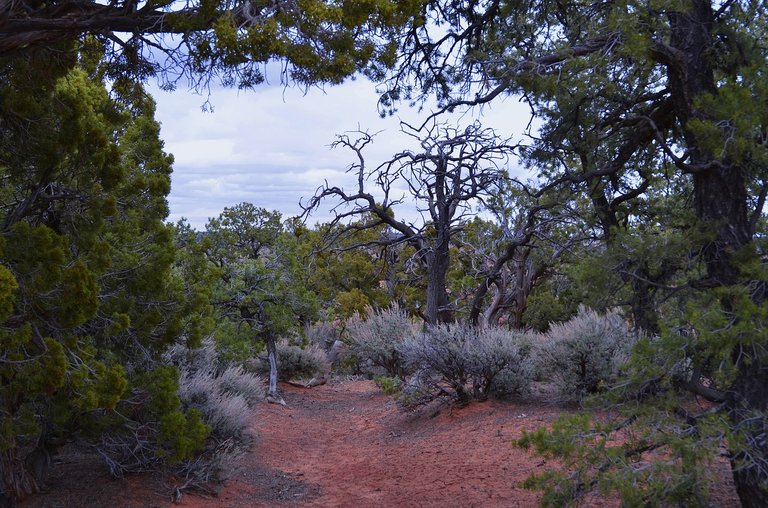
Pixabay: Falling of trees leads to desertification
Falling of these trees for any reason leave the area of land which they have occupied vulnerable to desertification this is because there is nothing to hold the soil in place and stop it form losing nutrients or even replenishing it's lost nutrient .
This open and uncultivated land might become a dessert if left over time.
Overgrazing :In dry lands or arid regions, the availability of vegetation and grasses are very essential in keeping the soil in place. Now most of the drylands inhabitants are livestock farmers hence these vegetation are used to feed livestock .
Overgrazing this vegetations might lead to the land being empty and unprotected from being blow or washed away by agents of desertification hence the formation of desert.
Unsustainable Agricultural Techniques: The use of improper farming practices might lead to or cause desertification. One of this method is the use of improper irrigation methods in the dry lands, such as canal irrigation.
Canal irrigation practices leads to the gradual buildup of salt in the land or soil in places where they are practiced. This excess salt in the soil makes it difficult for plants to grow and for crops to survive hereby causing desertification. Also the improper cultivation of these already degraded land exposes it to desertification .
Overpopulation : An increasing population on our planet might cause most of our land space to be deserted. The ecosystems have the capacity to sustain life on our planet only when it is balanced.
A rapidly increasing population requires the extraction of more natural resources like the forest vegetations and their products. The long-term extraction of these resources to Augment for the increasing population would on the long run lead to desertification.
Famine, political instability, and poverty : I know you are wondering and thinking that desertification causes these things and this should be in the effects and not here, but strong evidence have shown that these also can be causes of desertification.
The reason being that people who are on the verge of brink of famine, political instability or extreme poverty would want to solve these problems at all cost at the moment and do not stop to think of carrying out sustainable cultivation strategies.
The result or outcome are poor usage of land such as the use of land for short term food production that are unsustainable and the converging of many animals in a small pen which might destroy the soil and make it vulnerable to desert formation.
Climate Change: This is one on the major cause of this, the removal of vegetation from land reduces the amount of moisture in the soil which can evaporate to form cloud which induce rainfall. With a significant reduction in rainfall, such areas might experience drought which leads to a drier and hotter climate and can lead to desert formation.
The causes of these and this have shown that though nature have a hand with regard to the formation of this dry land man have a huge impact, let's see the consequences of these to man.
The Consequence And Effects Of Desertification
Desertification has played a very significant role in the course of human history. It has contributed immensely to the fall and collapse of various large cities and empires such as Greece, Carthage, and also the Roman Empire and it also led to the displacement of people and animals living in these regions, below are some of the effects of desertification :
Loss Of Conducive Human Habitat : People living in deserted areas are mostly faced with reduced productivity of land and low income due to the excess use of marginal land ( land that has not yet been degraded but has low productivity) or due to the transformation of rangeland to land used for cultivation.
Since policies are not in place to ensure other livelihood and survival opportunities, people living in this areas often migrate to places that have not been affected by desertification. This migrations over a long time Might make this unaffected areas overcrowded leading to more problems in those regions such as unemployment.
Loss Of Nutrients For Agriculture : As desertification happens or occurs in an area of land, the soil in such area becomes dry and can be washed and blown away making it lose most of its nutrients and what would be left is a pile of dust instead of a rich soil.
Desertification stops and reduces soil's ability to produce crops since a desert is known for its dry nature and most crops cannot survive under this condition. As there have been a reduction in the plants and crops that covers the soil surface, a deserted land is prone to soil erosion. Since it is exposed to agents of erosion such as wind.
Increase In Natural Disasters : Desertification increases the rate at which natural disasters occurs. Natural disasters such as dust storms, flooding and pollution occur at a higher rate in degraded soils. Since there are no plants and vegetations to stabilize the soil and slow down the runoff of water, rainwater accumulates and might lead to the flooding of human settlements. Apart from causing damages to lives and property, flood also brings about pollution.
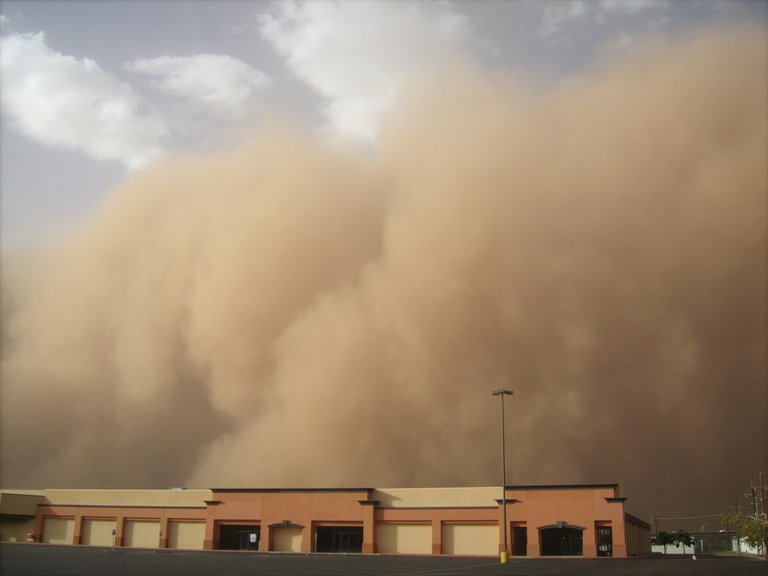
Pixabay: Sandstorm, a flood of sand from the desert
Loss Of Trees For Water Purification : Vegetation also plays a very important role in purification of water. Trees and plants acts and functions as filters do water by storing water pollutants like some heavy metals in their bodies. A deserted land lacks these plants and trees and hence these pollutants are not filtered and they get into underground water reservoirs and cause harm to those who use them.
Extinction Of Animals : Desertification also leads to the extinction of certain species. Some species that lived in fertile land have been forced to go extinct due to their inability to adapt to the newly dersertified lands.
Effects Beyond Desertified Areas
Desertification does not only have effects on drylands, it also has impacts to our environment on a global scale. Areas affected by desertification are sometimes found to be thousands of miles away from the deserted areas.
Desertification comes with attributes such as the reduction in the vegetative cover of the earth's surface which increases the production and formation of dusts which affects the global carbon cycle, cloud formation, plant and animal biodiversity and rainfall patterns in a global scale.
For example, dust storms coming from the Gobi desert affects visibility in places like Beijing. The dust storms originating from China affects places like Japan, Korea and have been observed to have impacts on the quality of air in North America.
These dust storms have been considered to be one of the causes of some health issues like sore eyes, cough and fever in dry seasons. Dust originating from the Sahara and east Asian regions has been recorded to cause respiratory problems in places as far away as North America and has also caused harm to coral reefs in the Caribbean.
The reduction in vegetation also leads to the concentration of dust, clay and silt in water reservoirs mostly located areas far away from the deserted areas.
Some Deserts Which Were Once Green Lands
The Sahara Desert
When you talk about the largest desert in the world, the Sahara comes to mind. Buts as weird as it may sound, could you believe that this was once termed to be a Green, now I got you thinking.
The Sahara which is bigger than the continental United States is a vast land of 3.6 million square miles located in Africa. Temperature in the Sahara is noticed to range in hundreds and then comes the wind which is so strong to generate a sandstorms capable of turning the sky dark and leaving anything unprepared for it choked of air.
The Sahara was not like this, if you were to pay a visit to where is now called the Sahara about 11000 years ago you would have met green lands, this was suggested by the archeology from caves which saw cave arts of crocodile and dinosaur fossil.
Great Victoria Desert
This desert is located in South West of Australia, it was known that the * Aboriginal * people once called this home, things changed after it was conquered by the westerns, the 50s and 60s saw the government of Australia evicting those still inhabiting this area and it's now a playground for the testing of nuclear weapons.
If you were to make a time travel back in time few million of years, you would find a land covered with rainforest and all green, with animals inhabiting, an equivalent of the Australian rainforest.
The Kalahari Desert
This is a semi desert which experience seasonal rainfall which tend to wake up dormant grasses and plants, though the seasonal rain the Kalahari is much more a desert as its often dry.
It's name is related to a local word with meaning, a waterless place as it have it temperature more than 110 Fahrenheit drying any cloud which tend to form in the area
Visiting the Kalahari about Tens of thousands of years ago, you will meet the Lake Makgadikgdi which was a fresh water body but this body dried since there was much water pulled than that supplied, about 10000 years back, it was turned to the Kalahari by bleeding,hence a dry land.
The Gobi Desert
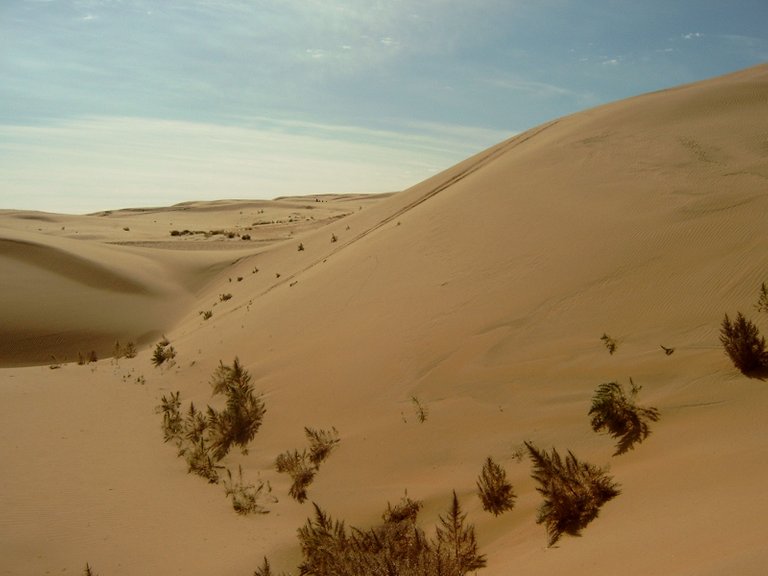
Gobi desert by Wiki CommonsLicensed UnderCC-SA 3.0 Available underGNU License
This desert covers about half a million square miles, it's a dry land having lots of plateaus and a little grassy during wet seasons. It's temperature is known to be mostly running below zero hence a cold desert. It's air suggest a little snow.
In the Gobi Desert, you will find find areas which was once green, today, an estimate of hundred of square mile is eaten up by this desert each year due to climatic change, overgrazing and deforestation. However one thing was of a fact, that the Gobi Desert was once a grassy field rather than Sands and rocks.
The Arabian Desert
This desert span through Saudi Arabia and parts of Egypt through a million square miles housing a contiguous sand body. It has a harsh climate condition making it one of the least areas to inhabit in the world since it's climate do not support human activity.
The Arabian desert was said to be a home to water bodies about tens of thousands years before now.
Mojave Desert
This span through most part of California parts of Arizona, Nevada and Utah with range about 47,877 square miles, quite small when compared to other deserts seen.
This desert have both the hot and cold temperature with time as it goes as low as below zero during the winter period and in summer can go to a temperature as high as 130 F. Around the last ice age about 10,000 years ago this was a wet area being marked with streams and lakes, but today a desert.
Antarctica

Pixabay: Ellsworth mountain range of Antarctica
And the last but not the least is Antarctica, I know it's quite easy to forget this area as being a desert. This is a cold and forbidden area. It's weird but this vast land was once a place dense with life. Upon research by Researchers, evidence of a rainforest was found in Antarctica which was dated 3 million years, are we to go back we would have found this empty land filled with life.
How Can We Save Our World From This Ordeal
Major management approaches and policy interventions and greatly needed to reverse and prevent Desertification and it's effects in our world today. Here are some of the preventive and reversal measures for desertification.
The Establishment Of '' Preventive Culture '' : This preventive culture requires the change of people's attitudes and mindset with right materials. Young people should be the aim of this projects because they can play a vital role in this process.
Series of case studies have shown that the people in drylands can reduce or tame the events of desertification in a way that is sustainable. Hence the world should be educated on the best way to handle this ordeal.
Improved Management Of Lands :The implementation of methods that salvage the soil from salinization, erosion and all other forms of degradation has also proven to be very useful in preventing desert formation from green lands
A proper and sustainable usage of land can stop some human activities such as overexploitation of plants, overgrazing, trampling of soil, and the use of irrigation practices that cause harm to the soil in drylands and make them vulnerable to desertification.
Protection Of Vegetation: The maintenance of this vegetative covers protects the soil from events such as erosion and Can help prevent desertification in a number of ways. The preservation and maintenance of vegetation also prevents the reduction and loss of the services of the ecosystem during periods of drought.
Desertification is also associated with low rainfall and this is because there has been a loss in the vegetative of drylands. If vegetations are protected and the practice of activities that destroys vegetation are reduced, desertification can be prevented.
Reforestation: This is a means to tackling one of the major causes of desertification that is deforestation.
The establishment of Environmental organizations which are focused on places were deforestation are contributing immensely to the poverty of people living in such areas
These organizations should focus on educating people about deforestation and it's consequences and also the need to plant seedlings that should be transferred to deserted areas which can serve as a counter measure against desertification. The restoration of the soil's lost nutrient is most times done by plants and therefore reforestation is an important counter measure against desertification.
Bringing It All Together
The balance of the world can only be maintained by us, we have seen vegetation turn into desert with time hence this changes should not be overlooked as it will be quite unfortunate if we or generations unborn will have to live in a world as hot as the temperature experienced in these regions.
This article is just a fraction of what might happen if measures are not taken to combat this, this is a call for the conservation of parts of our world which have not been affected by desertification already, we have seen how to combat this above its now time to put in the work to help achieve this and most especially illegal deforestation avoided and reforestation encouraged.
Until next time, Stay cool.

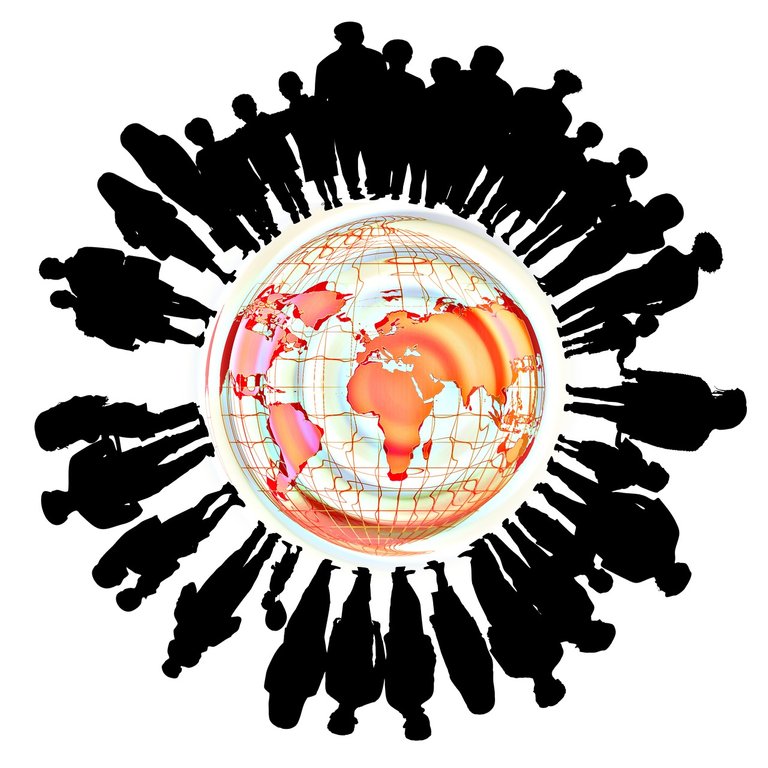
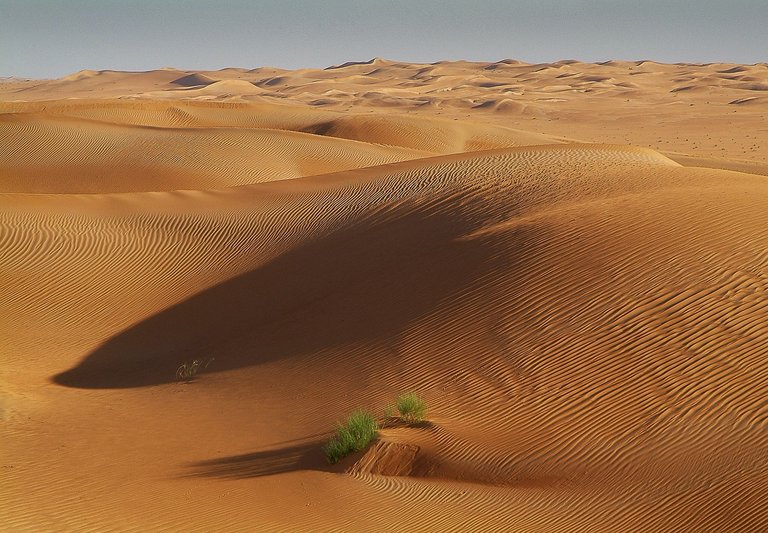

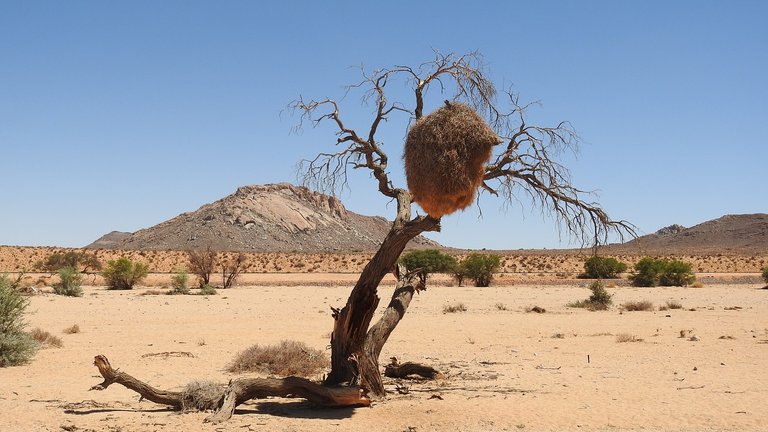
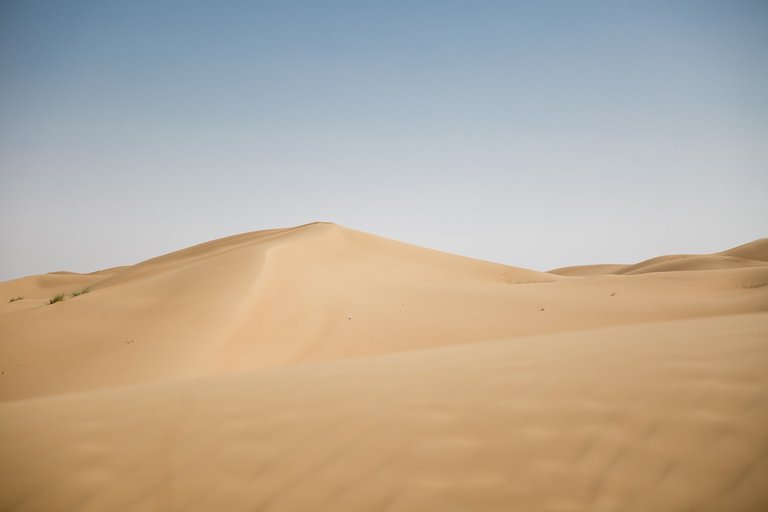
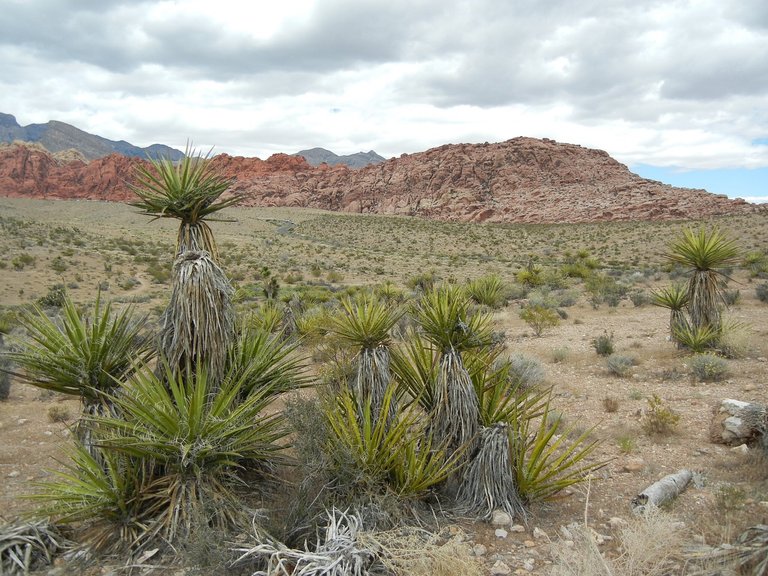
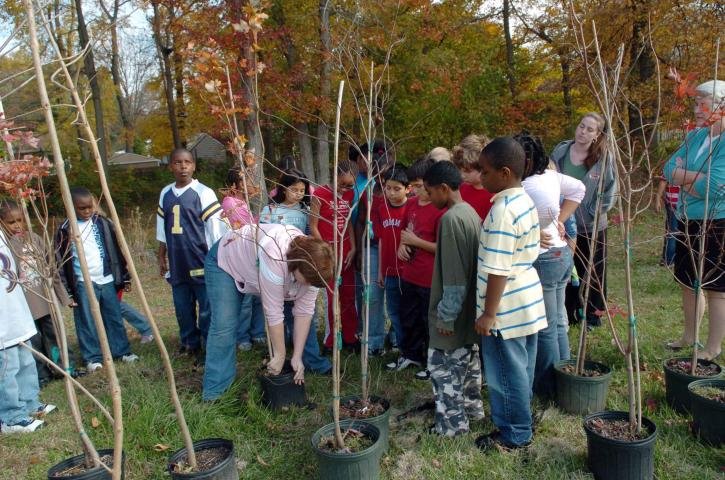
I thought this was going to be a post about how to make desserts.
Disappointed.. (
Yeah recently we had dust from Africa affecting Cyprus and Greece.
Sorry for the late reply Sir Alexander, have been taking a few exams, desertification effect goes beyond the deserted land, my brother at Cyprus complained about the furious wind during his early days there, bringing the dust with it.
I just hope we put all these to mind and join the fight against desertification.
Thanks for your contribution :)
Thanks for the post. Enjoyed reading it.
Since deserts like the Sahara used to be green land some tens of thousands of years ago, then it becoming a desert today would not be man-made (or desertification)?
It should be just a natural occurence that takes time to happen. Of course, human activities will only hasten the process.
Firstly,
let's analyse this together, clearing a forest and leaving it empty for nature's reaction, would you term an occurrence of desertification man made or some god who got angry?, I think we should stop viewing nature reaction as that of Zeus, Thor or Pesidion and look at it from how we affect these reactions with respect to changes on earth,only then will we make a better earth.
I would like to go back in time to see how the desertification of the Sahara began or ask the first man how he met the earth ,but ohh, my time travel machine is not yet ready, but I think nature have its reaction to some minute changes and our actions no matter how little have a part to play in all these.
Over the last few weeks, we have had a number of lectures by Pietro Lauerano, an architect and UNESCO consultant that is an expert on using traditional techniques to create desert oasis. If you have not seen his work, you should: http://www.ipogea.org. I love his approach, because he understands that to bring water back to these areas, you need to use the methods nomads have used for centuries, otherwise the water will dry up quickly. His lectures are fascinating!
Wait a minute, I didn't think of actually getting the water back into these lands, Nice you brought it up :)
Actually followed the link you dropped but it led to a locked site, I would really like to hear his ideas of getting these deserts back to usefulness if you would like to share with us.
So strange, the link works for me. Try this, if not Google his name: Pietro Laureano.
His work with oasis is really inspiring. He does not believe in pumping in water, he believes in working with the very architecture of the desert itself. He was showing us how ancient tribes would create sand dunes with palm leaves sticking out the top to capture more sand and create barriers to prevent emerging oasis plants to grow and to expand the range. There are all kinds of techniques that worked for centuries, but have been lost because companies come in thinking they can add machinery and tubes. They don't understand that each technique is tied to another, creating the conditions for the palm tree to grow, which is fundamental to the continuity of water. We need to give dignity back to the old ways that work. I wish I had photos of his projects, but they haven't yet given us the slides.
What a great mind, quite embedded with knowledge, got me wishing I took that lecture with you :)
Bringing back life to these places in any way possible should be our focus, with the increasing population I think we need these lands which are now considered waste, even the colonization of Mars is more tasky than this.
Its cool learning that these lands can still be useful, I really appreciate your being here :)
Likewise! I look forward to more exchanges on topics like this. Once we get the slides, I will share some photos. I remembered one amazing project: Al Ain in Abu Dhabi. Laureano and his team expanded the oasis there and built the visitor center. Check it out here. Everything around the oasis is traditional, yet the visitor center itself is modern, yet integrated into the landscape. He wanted to show that there are places where you can integrate technology and modern techniques, but it should be a compliment, not a replacement of what works. I find it stunning!
Would be expecting them if they come, it's amazing all the ideas shared, with ideas like this, there is no limit to what we can achieve.
Interesting that like a lot of problems, one of the major root causes is poverty. Really informative article, thanks. Amazing that the Sahara is bigger than the continental United States!
It's nice seeing you here @flyyingkiwi, thanks for reading :)
I grew up in the 'great american desert', otherwise known as the high plains of Texas. We get about a foot of rain a year...and you ought to be there that day.
I've heard of a place called Phoenix Az. In fact I've been there a few times. Does it qualify as a desert?
Geography classify Phoenix Az under the Sonora desert, desert are classified based on the level of precipitation which occur in an area so it actually qualifies a desert.
Thanks for being here @everittdmickey, see you around :)
Interesting. Life in the Antarctic, I never figured there ever was. For one, I think the measure of reforestation and proper land use and management would go great lengths at salvaging a few of these would-be desert places.
Well said pangoli, if policies against desertification are implemented and followed by us, we can save our world from this ordeal.
Happy Easter in advance, still waiting for your invitation :)
interesting post!!!!!! i really enjoyed reading this!!!! @logic42
Nice having you here @suravsingh :)
😞😞
poor drainage system could also lead to desertification slowly, because if drainage is poor, the land in question would be prone to erosion and water logging which can in turn bring a accumulation of salt in that soil making it difficult for plant to grow
Great read. Thoughts on stopping or reversing desertification?
Did you know today is World day to combat desertification? https://steemit.com/desertification/@thegreens/did-you-know-your-every-day-actions-are-significantly-contributing-to-desertification-world-day-to-combat-desertification
Hi, I just followed you :-)
Follow back and we can help each other succeed!
Get off my ass, Spammer.
You are very talent of having talent in Steemit
You are very talent of having talent in Steemit
Thank you
Hope to help each other, thank you
You are very kind, happy to be friends with you